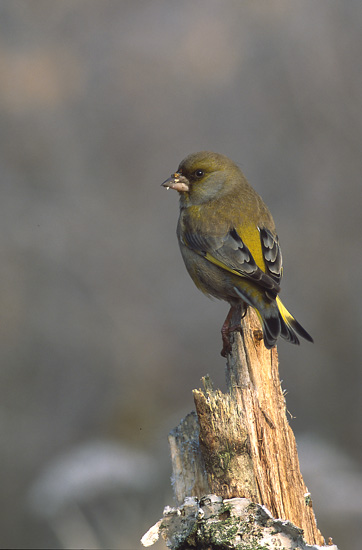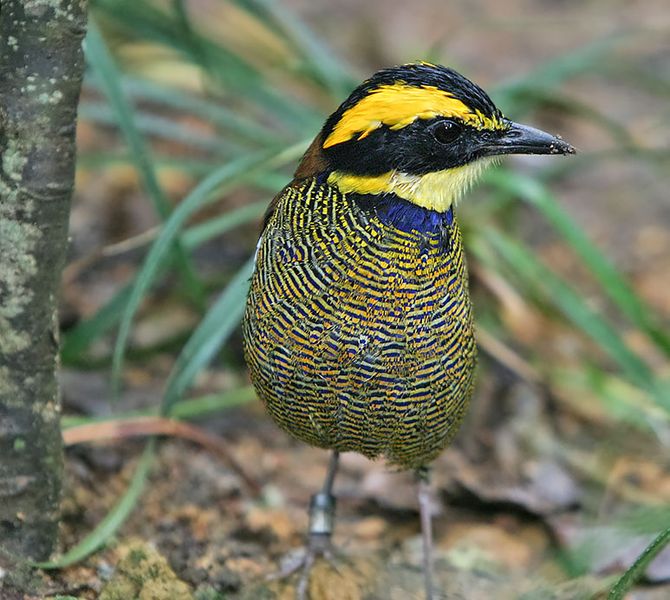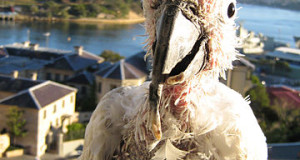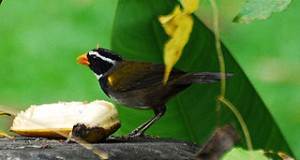 Have you ever been met by blank stares when trying to convince “non-bird” people that your pet has a unique personality? You might be believed if you’re referring to a parrot, but a canary or other finch…not likely. However, a recent (April, 2011) study has confirmed that Greenfinches, Carduelis chloris, do indeed exhibit widely-varying personalities. My experience, and that of countless other bird-keepers, convinces me that this is true for other species as well.
Have you ever been met by blank stares when trying to convince “non-bird” people that your pet has a unique personality? You might be believed if you’re referring to a parrot, but a canary or other finch…not likely. However, a recent (April, 2011) study has confirmed that Greenfinches, Carduelis chloris, do indeed exhibit widely-varying personalities. My experience, and that of countless other bird-keepers, convinces me that this is true for other species as well.
Behavioral Responses
By measuring stress levels in the blood of Greenfinches, researchers at the University of York (UK) established that differences in behavior were directly correlated to distinct personality types.
Brightly-colored objects (plastic cookie-cutters) were placed in the finches’ food bowls and their reactions were observed. Some birds approached the bowls within seconds, while others took up to 30 minutes to work up their courage.
Chemical Responses
Next the researchers took blood samples from the birds, in order to test for oxygen toxins, which are released in response to stressful situations.
The shyest birds had the highest levels of toxins, while the boldest individuals had low levels. The stress-prone, shy birds also had poor defenses against the effects of the damaging toxins; the immune systems of the curious birds were more effective.
Personality and Survival
It’s difficult to predict the survival values, if any, of the differing personalities. Shy birds might easily become ill due to the effects of stress, but they would also likely be adept at avoiding predators and other dangers. Aggressive birds might be more successful at reproduction, but could perhaps more easily be taken by hawks and other enemies.
Implications for Bird Keepers
This research shows that we must pay careful attention to the specific needs of our individual pets… an environment suitable for one Amazon Parrot or Canary, for example, might be detrimental to another.
Also, the work has important implications for breeders, as reproduction always shuts down in stressful situations. Stress-mitigation has been critical in the breeding of many of the rare birds with which I’ve worked, from California Condors to hummingbirds (please see photos). In the pet trade, most of us would know to treat shy birds such as the Banded Pitta (please see photo) with kid gloves…but we should bear in mind that even among Cockatiels and others known to adjust well to captive life, there will be stress-prone individuals.
Other Personality Traits
 Other studies have revealed that birds are surprisingly complicated when it comes to personality and individual behavior. Some have shown that birds exhibit empathy towards cage-mates, while others established that stress in the nest exerts effects on behavior years later. Please see the articles below for details.
Other studies have revealed that birds are surprisingly complicated when it comes to personality and individual behavior. Some have shown that birds exhibit empathy towards cage-mates, while others established that stress in the nest exerts effects on behavior years later. Please see the articles below for details.
Further Reading
Stress in the Nest Affects Adult Behavior
Research Paper: Stress and Reproduction in Birds
Green finch image referenced from wikipedia and originally posted by Marek Szczepanek
Purple throated hummingbird image referenced from wikipedia and originally posted by charlesjsharpe
Banded Pitta image referenced from wikipedia and originally posted by Doug janson
 That Bird Blog – Bird Care and History for Pet Birds
That Bird Blog – Bird Care and History for Pet Birds




Hallo Frank
One thing that comes to mind when reading this article… Our African Grey is different in the sense that it is not searching for very close contact. It loves to sit aside and only then it would join into the conversations we have.
BUT the funny thing is that the parrot just do not like me! I respect that fully (though in doubt why) and leave him alone. It loves my wife, my tree sons and even my brother in law (he actually is the only one who will handle that bird like a small child…playing, kissing etc) but just not me! It will ONLY come to me when it wants to climb up the table. I then will put out my leg so he can climb to where ever he wants to be….
Another thing I don like to mention but nearly every parrot I approach, will have a negative behavior…? This is some thing I learned to live with but that also emphasize the fact that birds DO have personalities!
Thanxzzz for your cool article!
Gert
Hello Gert, Frank Indiviglio here.
Nice to hear from you, thanks. You raise a very interesting point…parrots (and other birds) can indeed be very choosy about the people they will tolerate. In some cases one sex is favored, in others one person is disliked; it does illustrate that there are many things going on with them that we just do not understand. Interesting that the parrot will “use” you when necessary…quite clever!
As for negative behavior, again a great point that too many folks avoid or do not recognize. Despite their many attractive qualities (from a bird enthusiast’s point of view) parrots are in many ways poorly suited for captivity, at least in the ways that most people are able to keep them. In my opinion, this is one of the most perplexing and serious issues that bird-keepers (and zoos) face.
Please let me know if you need any further information. Good luck, enjoy and please keep me posted.
Best regards, Frank Indiviglio.
Hallo Frank
One thing though that boggles my mind…
Our African Grey calls the following; “Hallo Gollo” (his name) when ever he hears my wife or kids enter his room. He then holds hes head down for them to scratch and usually my wife obliges!
BUT as soon as I enter his room he ALSO calls “Hallo Gollo” but acts Completely different (as I mentioned before). So I found that he uses the same words (in his world-SOUNDS) but for different “emotions”.
Maybe I have to try to hear wither the pitches of the words are different…?
Hello Gert, Frank Indiviglio here.
Thanks, very interesting. It could be a difference in tone or pitch, as you suggest. Researchers working with various birds have made similar observations as you – what seems to be the same call used in different situations. Or it could be just the parrot’s way of improvising to fir a situation it would not face in the wild. Please check out this article on Racket-tailed Drongos – about the most amazing example of bird communication I’ve run across.
Please let me know if you need any further information. Good luck, enjoy and please keep me posted.
Best regards, Frank Indiviglio.
I know what you mean by trying to explain to people about your bird’s personalities. We traveled with my sister one time with our two cockatials, and she commented that she didn’t know that they had such personalities.
We have three cockatiels now and they are all different, with different likes and dislikes….just like people!!
Hello, Frank Indiviglio here.
Thanks for your interest in our blog; as you say, once people pay attention even those without experience can note some differences.
Good luck, enjoy and please keep me posted.
Best regards, Frank Indiviglio.